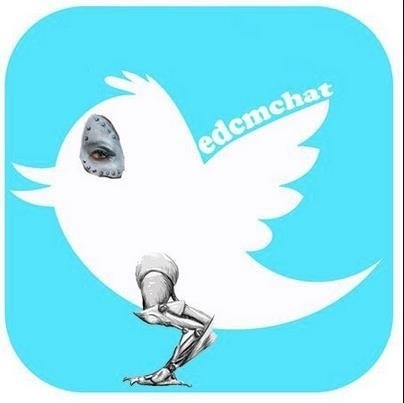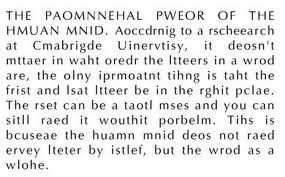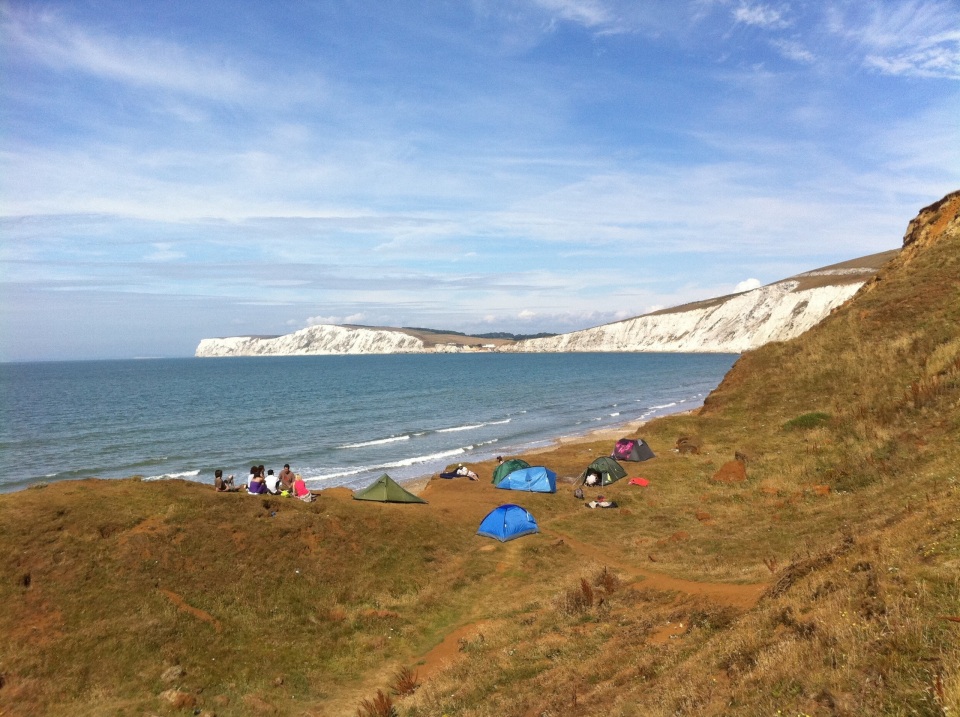Home » MOOCs (massive open on-line courses) » #edcmooc
Category Archives: #edcmooc
Assessing others….
……why is it so difficult?
Whilst doing my Greek Mythology course we had to assess other students work. I found it excruciating and couldn’t understand how teachers do it day in and out. I cringed my way through it. Why? Because I felt guilty when I had to write something negative. I know it had to be done and it was based on specific criteria. I also made sure there was a positive spin on it and that it was constructive. But even so I hated it. You could tell people had made an effort but had missed the post or just not addressed the criteria. I started thinking about the people behind the assignment. Who were they? What do they do? Why are they completing the course? Was I upsetting them? Affecting their confidence? The whole process made me anxious.
Now, edcmooc was totally different. Not only did I feel more connected, as mentioned in my previous post about this mooc, but I have just finished assessing 7 assignments, and we only had to do 3! We had to assess digital artefacts and I can only think this is what made the difference. I gave full marks to everyone and I could justify them all using the assessment criteria. It was a totally different experience and it has to be because of the type of material being assessed. I enjoyed the process and only stopped as I ran out of time.
Maybe its because this course made us all feel so engaged and connected that we did so well with our assessments, hence making my marking experience more positive.
Who knows and who cares. The main thing is I, and many others, completed a very enjoyable course which cost nothing and gave us so much.

Image taken from http://www.guardian.co.uk
Reflections of e-learning and digital cultures
Picture created by fellow EDCMOOCer Cikgu Brian
As mentioned in an earlier post, I have now completed and submitted my final assessment. All that is left to do is assess classmates artefacts and a final Twitterchat on Saturday.
This was my third MOOC (massive open on-line course) and has, so far, been the best one.
My first one was Greek Mythology. I loved this as I never thought I would study something like this. I had tried reading Greek myths in the past but just couldn’t stick with them. With the help of an on-line lecturer, weekly tests and 2 written assignments, I achieved a 92% mark. It was quite a solitary experience as there was little interaction. I just couldn’t get into the forums partly due to a lack of confidence, and partly because, on the rare occasion I had an original thought someone else had already added it.
My second course, How to Reason, was a different matter altogether. I found it so difficult that I, reluctantly, had to un-enroll.
I am also doing an Introduction to Philosophy which I have nearly completed.
E-learning and Digital Culture was a whole new ball game! I felt like Felix Baumgarten must have felt as the earth rushed towards him. It was fast and scary and not what I was expecting. I made connections, helped and was helped by classmates, increased my use of Twitter and G+ and started a blog. I have learnt how to moderate a Twitterchat, use Prezi and Storify and created a digital artefact. I have read, thought about and discussed issues such as transhumanism and utopia/dystopia.
But the biggest thing I will take with me is how people came together, formed groups and supported each other. They came from different parts of the world, cultures and spoke different languages. But we all experienced the same concerns and problems and were quick to help each other. Either with practical tips or just words of support or encouragement.
My next course is Internet history, technology and security and I will be interested to see if the same feeling of community can be achieved.
Final assignment
Well I have finally finished my final assignment and created my digital artefact for the edcmooc. I based it on how much education has changed and how technology has played a huge role in this.

It raised interesting questions for me. You would assume that technology is helping children (and adults) to learn and make education more relevant to them, thus engaging them more effectively. I read somewhere that 78% of children felt that technology helped them in their studies.
I know for some this is dystopia and that children aren’t learning properly or in the way “it used to be”. But is that a bad thing? I read Marc Prensky’s digital natives digital immigrants and is Google making us stupid? by Nicholas Carr. Both articles are essentially saying that our brains and the way we learn and take in information has changed. You can see this vividly when you consider how children learnt in schools in the past (if they were lucky enough to be able to attend school at all) using repetition and memorisation.
Now compare it to the way children learn today. A whole raft of strategies are used to engage students and technology appears to be the future of education. On the surface this is great as technology is the “first language” of children and it is relevant to them. They are digital natives. I was fascinated by this article which shows how children are not afraid of technology and simply embrace it. This does seem to support the view that technology will eventually ensure that all children will have access to education regardless of their background.
However, is it really that simple? This BBC article highlights one of the problems as does this one also from the BBC.

But the biggest problem, here and abroad, is not just down to the actual lack of money in terms of poverty but all the other things that go with it. The ATL teachers union, did a study in 2011 which showed that more than 85% of the teachers who responded to the survey said they believed that poverty had a negative impact on the well-being of pupils they taught.
80% said students came to school tired
73% said they arrived hungry
67% said they wore worn-out clothes or lacked the proper uniform.
71% said pupils living in poverty lacked confidence
65% said they missed out on activities outside school such as music, sports or going to the cinema.
80% of teachers surveyed said they believed poverty had a negative impact on pupils’ attainment – with problems including under-achievement, not having a quiet place to study at home, inability to concentrate and lack of access to computers and the internet.
I find these statistics even more scary as this survey was conducted in a so called “developed” country (UK).
Even if these students had a laptop and broadband connection at home would they have the motivation and concentration to study if they are hungry, cold or perhaps living in a climate of domestic violence? What about children who live abroad? If you are in a war zone or refugee camp education may not be a priority. What about children who are the sole wage earners and are working 16 hours a day? Or girls who have to study in secret or not at all because educating them is considered wrong?

You can throw as much technology and money at it as you like but if circumstances and attitudes aren’t changed it is basically pointless.
I am not saying don’t invest in it but look at the bigger picture and don’t assume technology alone will solve a problem. Things will change, as they already have done, but it will take time and, as always, it will move quicker for some. This made me think of the first part of this post which mentioned how our brains are changing as we use them differently. It will be interesting to see how this affects people in the future if some have ready access to technology, and use it daily, and those that don’t. Will we evolve differently? How will this affect humanity? Hopefully for the better of just differently.
Is Google making us stupid?
We are now into week four of edcmooc and looking at transhumanism. The videos and readings, as always, are interesting and thought provoking. However, it was this article that I was drawn to as it is something I have often thought about. However, I hadn’t thought of it in the way that Nicholas Carr had with his take on how Google has changed the way we write and process information. I am constantly on-line in someway through work, study or personal stuff. I read a lot and definitely skim read but then I have always done this. Or at Ieast I think I have but maybe technology has affected my perception and memory! No, what I mean is when you have one of those conversations that start “you know who I mean”. “The one that did that film”. “You know! He was married to what’s her face”. And so it goes on. Nowadays I just Google it and the office is then filled with cries of “oh him”!
What did we do before? We used our brains, our memories, asked people or just gave up when it drove you to distraction. Often it would come to you hours or days later after you had stopped thinking about it. My Nan has a really useful way of remembering something, she just recites the alphabet and hopes this triggers her memory. It does work but its speed and efficiency is not as good as Google. Sorry Nana! This is something that Nick Bostrom, in his piece Transhumanist Values, would consider to be a human limitation
I once spent an entire train journey from London to Cornwall (6 hours) trying to find out which actor my friend was referring to in the absence of wifi and Google. When she couldn’t remember his name she tried to describe what TV programme he was in which then meant we had to remember what it was. We couldn’t so we then had to remember the name of the film he was in, no success. The name of his famous wife, we couldn’t. The name of the films she had been in, nope. The people they had starred with, no luck there. And the name of their films, still nothing. We only got it in the end by texting a friend, definitely not efficient. If I had had wifi we would have got it within 3 minutes even if we had to type in really vague search criteria. Maybe 50 years ago we could afford this luxury of time to figure stuff out but today…….
It also showed me how much I rely on Google. Does it worry me? Not really because I still remember a world without Google and possess some of the intellectual skills to do without it. But I would rather not as I could be spending time doing something else or finishing another task.
But then is it a bad thing? Are we thinking badly or differently? Skim reading isn’t necessarily a bad thing and has advantages such as getting an overview of many sources in a short space of time. You may think you are not taking it in but you probably are.
Using Google to search instead of trying to remember doesn’t mean your memory will fail just as referring to an encyclopaedia or dictionary won’t damage it.
And searching on Google when you are trying to remember something, and don’t have specific keywords, is an art form in itself. Maybe this is the way the brain needs to evolve in order to serve us in the future. Or is it that the world will evolve to match our changing brains.
Ultimately, the human, society, education etc have evolved and things have adapted to keep up. In his article Carr writes,
“The arrival of Gutenberg’s printing press, in the 15th century, set off another round of teeth gnashing. The Italian humanist Hieronimo Squarciafico worried that the easy availability of books would lead to intellectual laziness, making men “less studious” and weakening their minds”.
Well this easy availability of books revolutionised the world and things changed to absorb this new “technology”.
Carr suggests that we are not reading as in depth as before and that this is changing our brains but I think we are also learning new talents. People are now writing more. Normally this would have been the preserve of scholars, authors, experts etc, but now anyone can write a blog, post an opinion or set up their own website. Think of the creativity and good stuff we would have missed out on if this was denied us. Obviously not all of these items are to our taste, right or legal but I guess that it is the price we have to pay for the good stuff. And once again we have adapted to absorb this eg changed laws to accommodate new types of media and resulting crimes.
We shouldn’t underestimate the power of the human brain as it can change, survive and thrive and perhaps has to for us to evolve.
Being Human
In his lecture, HUMANITY 2.0: A 21ST CENTURY VIEW OF ‘THE TWO CULTURES’ PROBLEM
Steve Fuller, Professor of sociology at the University of Warwick, showed the following slide;
To be human is to engage in an activity whose purpose goes beyond the promotion and maintenance of the animal natures of those qualified to be human.
1. Ancient Artifice = Paideia (Inhabiting the right mental space to deal with others and the world, e.g.. ‘the humanistic world-view’.)
2.2. Mediaeval Artifice = Universitas (Incorporating yourself in a social entity with a greater purpose: e.g. ‘the project of humanity’)
3.3. Modern Artifice = Engineering (Redesigning the environment, including one’s body, to enable a certain desirable form of existence with less effort: e.g. ‘transhumanism’)
This description made me think of people in comas, with autism, cerebral palsy or similar conditions. Think of someone with severe cerebral palsy. Unable to speak, walk, or go to the bathroom or eat independently. How about autism? The definition from the Autistic Society says;
“Autism is a lifelong developmental disability that affects how a person communicates with, and relates to, other people. It also affects how they make sense of the world around them.
Asperger syndrome is a form of autism. People with Asperger syndrome are often of average or above average intelligence. They have fewer problems with speech but may still have difficulties with understanding and processing language.” http://www.autism.org.uk
If you read the initial descriptions of being human does means that people with certain conditions aren’t human? (I don’t think this by the way before I get posts telling me what a cow I am).
It is an interesting point though because there are so many people out there who won’t fit these descriptions. There may even be specific times in a persons life where they don’t fit the criteria. For example if someone is clinically depressed are they inhabiting the right mental space to deal with others or incorporating themselves in a social entity. Are they not human? They are also people out there who are simply introverted who don’t fit the criteria. Are they not human?
Defining a human is difficult if you are using a set of criteria. You can list biological/physiological functions but they can equally be applied to animals, and that’s a whole new debate, as Professor Fuller mentioned in his lecture
1. There has always been some ambiguity about where to draw the line between humans and non-humans, starting with Linnaeus’ definition of Homo sapiens.
2. There has always been recognition of the diversity of physical and mental qualities of beings that might qualify as humans.
Not only is trying to define a human difficult it is also open to dangerous interpretation. Think Nazis and the Taliban. And you don’t need to look at history to see groups of people treated differently or mistreated based on who they are and other people’s perceptions, eg women in Afghanistan, disabled people in some parts of Romania, gay people in some african countries.
So what makes us human? Our intelligence? But does that mean apes aren’t clever? Our humanity? There are plenty of people out there who show a lack of that.
In his book, Discourse on the Method, Descartes suggests that reason is ‘the only thing that makes us men [sic] and distinguishes us from the beasts… .’11. So does this rule out people with certain mental illnesses where this reason or rational thought is not exhibited or temporarily lost?
I am certainly not going to be able to answer the question of what a human is. I can give a list of some of the things that make us human but they could equally apply to animals and wouldn’t be a definitive list. But maybe this is a good thing. It means that we can continue debating and discovering and, in the process, evolving. In the past these debates have driven through powerful changes to things like the suffragette and civil rights movements. Maybe one day these discussions and discoveries will lead to equality for all (probably not but its worth a shot!)
Next week we are looking at redefining the human which should be interesting as I haven’t even got as far as defining one yet!
My life in cake
I was trying to create some clever and insightful digital artefacts but got side tracked by cake! Maybe tomorrow…….
Look to the future – plurality
Today I watched another of the videos for week 2 of the #edcm course. It was called Plurality and depicted a society (2023) where we were monitored through our DNA. It was George Orwell’s 1984 all over again except with more modern technology.
It is a little frightening because I can see a world like this existing. Perhaps not in my time but not that far off. It might seem unlikely but I imagine ipads, mobile phones, ATMs and grocery home delivery would have been unimaginable to our grandparents when they were young.
The course asked us the following question: To what extent do you think Plurality’s depictions of the impact of surveillance technologies are relevant to social and educational practices today? I think they are extremely relevant as people are concerned about privacy and the amount of time they feel they are under surveillance.
This article on the BBC shows how concerned we are. There are generally two sides to this. The “if you haven’t got anything to hide what’s to worry about” brigade and the other side where individuals feel that we have the right to go about our daily lives without being watched. There are also concerns about what happens to all the information that is gathered. I am not sure where I stand. I sort of agree with both sides. I don’t want to see the levels of surveillance we see in Plurality but I also see the benefits of monitoring and surveillance (crime prevention, sense of security etc) However the important thing is to keep the debate alive as this will be the way that we prevent society from reaching the surveillance levels seen in Plurality. Human rights activists are sometimes seen in the UK as “whingers” with nothing better to do. But we always need both sides of an argument to be heard so that a balance is maintained.
I was amazed when I recently joined the world of education and started working in an Academy. We have access to all sorts of data, attendance, rate of progress, current results etc. Education seems to have become very data focused. I can imagine one day having a central record on each of us which contains information on every aspect of our lives. Again, I sit on the fence on this. Like surveillance I don’t have a major problem with it in theory. My biggest concern with surveillance and monitoring is the intention behind it. If they are good then fine but if not………. This leads to other questions though. Who decides what the purpose of collation is and who decides what are good intentions and bad intentions.
Ultimately I think that society will deal with these issues as we as a society and technology evolve. Just as long as we can keeping talking, uncovering and debating.
Edcm week 2 – looking to the future
Small world
What do a Personal Assistant, a teacher, a lecturer and employee of the Department of defence have in common? We all live in different countries and time zones, but we are working together to moderate a Twitterchat for a MOOC that is being taken by 40,000 people from around the world. Technology allows us to do many amazing things these days and brings the world to you.
I remember the days when the only way I could stay in touch with my family in Germany was to write (although not often when I was a teenager) or call (restricted by finances). Now I can connect with friends and contacts from around the world instantly (unless the time zone means they are asleep), for free (not including the cost of broadband), frequently and at my convenience.
It does make me think how we managed before. As a teenager I would often meet friends in town to go shopping. If one of us was late or unable to come we had no way of informing each other at short notice. The others, waiting at the meeting point, would just wait an acceptable amount of time and leave. i couldn’t imagine not being able to let someone know about a last minute change of plans. Makes me a bit twitchy to be honest!
Are we slaves to technology or is technology our slave? I think it’s all dependent on us. If we manage technology and know when to switch off, and not use it for the sake of it, technology is utophic. If you don’t manage it properly dystopia will ensue.
Remember there is a real world out there to explore so make sure you step out once in a while (and don’t forget to Tweet about it, add photos of the outing to Facebook and blog about it when you get back!)
#Edcmooc Utopia/dystopia – Utopia
Following on from my post yesterday I observed something in a meeting today which adds to the idea of technology being a vital and positive thing and helps to improve our lives. As we sat round the table most of us (99%) were using an iPad, smart phone or laptop.
We were able to use the devices to access information that would have had to wait in previous years. If someone referenced something but was unclear or had forgotten what had been written, the document in question could be accessed immediately. In the ‘olden days’ you would have had to leave the meeting to find the document or leave the discussion and return to it at a later date.
We were also informed of transport delays, via Twitter, which affected one of the attendees. I was able to finalise arrangements for a meeting tomorrow which couldn’t have waited until the next day. There are times where I feel that technology enslaves us (always being accessible and us always responding) but there are times where it frees us.
Utopia or dystopia? It depends on the user and how they utilise and respond to technology.





